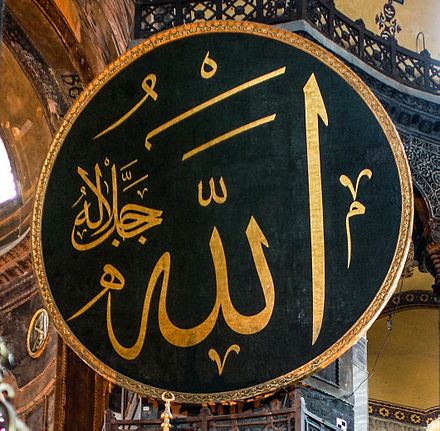Death is an inevitable reality that every soul must face. In Islamic teachings, death is not the end but rather a transition from one state of existence to another. This comprehensive article explores the journey of the soul from the moment of death until the Day of Judgment, based on authentic sources from the Holy Quran and Sahih Hadith.
The Approach of Death
Signs of Death’s Approach
When death approaches, several phenomena occur according to Islamic teachings. The Prophet Muhammad (peace be upon him) described various signs that indicate the nearness of death. In a hadith narrated by Imam Ahmad, he mentioned that a dying person can see angels. The eyes become fixed, and the soul begins its journey of departure.
The Quran states: “Then why, when the soul at death reaches the throat, and you are at that time looking on – and We are nearer to him than you, but you do not see” (Quran 56:83-85).
The Presence of Angels
Two important angels appear at this crucial moment: the Angel of Death (Malak al-Maut) and his assistants.
As mentioned in the Quran: “Say: ‘The Angel of Death put in charge of you will take your souls, then you shall be brought to your Lord.'” (Quran 32:11)
For believers, this moment brings comfort and peace.
The Quran describes: “Those whose lives the angels take in a state of purity, saying ‘Peace be upon you; enter Paradise for what you used to do'” (Quran 16:32).
The Moment of Death
Separation of Soul from Body
The process of the soul leaving the body is described in various authentic hadith. The Prophet Muhammad (peace be upon him) compared it to the pulling of a thorny branch through wet wool – difficult for those who lived in sin, and gentle for the righteous.
The Soul’s First Journey
Immediately after death, the soul experiences its first journey. According to authentic hadith, the souls of believers are carried upward through the heavens, while those of disbelievers are denied entry into heaven.
Life in the Grave (Barzakh)
The Questioning
Once buried, every person faces the questioning by two angels, Munkar and Nakir. In a hadith recorded by Bukhari and Muslim, the Prophet (peace be upon him) explained that these angels ask three fundamental questions:
- Who is your Lord?
- What is your religion?
- Who is your Prophet?
The Window to Paradise or Hell
The grave either becomes a garden from Paradise or a pit from Hell.
The Prophet (peace be upon him) said: “The grave is either a garden from the gardens of Paradise or a pit from the pits of Hell” (Tirmidhi).
Signs of the Day of Judgment
Minor Signs
The Prophet Muhammad (peace be upon him) mentioned numerous minor signs that would precede the Day of Judgment, including:
- The spread of knowledge
- Increase in ignorance
- Prevalence of music
- Consumption of alcohol
- Competition in building tall structures
Major Signs
The major signs, as mentioned in authentic hadith, include:
- The appearance of Dajjal (Anti-Christ)
- The descent of Prophet Isa (Jesus)
- The emergence of Yajuj and Majuj (Gog and Magog)
- The rising of the sun from the west
The Day of Resurrection
The First Trumpet
The Quran describes the first blowing of the trumpet: “And the trumpet will be blown, and all who are in the heavens and all who are on the earth will swoon away, except him whom Allah wills” (Quran 39:68).
The Second Trumpet
At the second trumpet blast, all creation will be resurrected.
The Quran states: “Then it will be blown again, and at once they will be standing, looking on” (Quran 39:68).
The Gathering (Al-Hashr)
Assembly of All Souls
All of humanity, from the first to the last, will be gathered on a vast plain. The Quran describes: “Say: ‘Indeed, the former and the latter peoples will surely be gathered for the appointment of a known Day'” (Quran 56:49-50).
The Wait
People will stand for what feels like fifty thousand years, as mentioned in the Quran: “The angels and the Spirit will ascend to Him during a Day the extent of which is fifty thousand years” (Quran 70:4).
The Judgment
The Books of Deeds
Every person’s deeds will be presented in a book. The Quran states: “And the Book will be placed, and you will see the criminals fearful of what is in it” (Quran 18:49).
The Scale (Al-Mizan)
Actions will be weighed on a divine scale. The Quran explains: “And We place the scales of justice for the Day of Resurrection, so no soul will be treated unjustly at all” (Quran 21:47).
The Bridge (As-Sirat)
Crossing the Bridge
All must cross a bridge over Hell, described as being thinner than a hair and sharper than a sword. The Prophet (peace be upon him) said that people will cross it according to their deeds – some like lightning, others crawling.
The Final Destination
After crossing the bridge, people will either enter Paradise or Hell, based on their beliefs and actions during worldly life.
Paradise (Jannah)
Description of Paradise
The Quran and hadith provide detailed descriptions of Paradise, including:
- Rivers of pure water, milk, honey, and wine
- Eternal youth and health
- Reunion with family members
- The highest pleasure of seeing Allah
Hell (Jahannam)
Description of Hell
The Quran and hadith also describe Hell in detail:
- Intense heat and cold
- Various levels of punishment
- Different types of torment for different sins
Conclusion
Understanding this journey from death to the Day of Judgment serves as a powerful reminder of our purpose in this world. It encourages believers to prepare for the afterlife through righteous deeds and sincere repentance.







